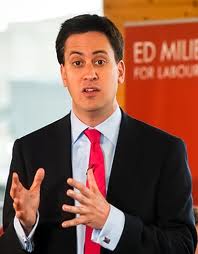Both government and opposition are now speaking of harnessing ‘Big Data’ to create all sorts of ‘real time’ service information for the public. Last week Ed Miliband used his Hugo Young Lecture to match up access to information with wider issues of public accountability. He said:
‘…information on individuals should be owned by and accessible to the individual, not hoarded by the state. That people get access to the information unless there is a very good reason for them not to. As the government has already acknowledged, that must include the right to access your own health records, swiftly and effectively.’
There is nothing startlingly new here. This is the sort of information has been opened up over the last two or three decades by FOI and a whole range of separate pieces of access legislation. However, Ed Miliband said this could go further with new technology, using the example of education:
‘Schools collect huge amounts of information on our kids. The old assumption is that it gets shared with us once or twice a year at a parents’ evening. Many good teachers know that its better if parents shouldn’t have to wait for a parents’ evening to understand how their son or daughter is doing, where things are going well and what more they could do. And new technology makes the sharing of this information much easier.’
He spoke of using systems like the Learning Gateway ‘which provides teachers, pupils and parents real-time information on pupil attainment’.
‘…the Learning Gateway is now used by over 100 schools. And just as with the best private sector companies, we can “track our order”, so too in the public sector we should be able to “track our case”.
Looking at the FAQs on this site it seems to show how parents can track punctuality, attendance and performance virtually in ‘real time’. I can see how this ‘real time’ information could transform services.
What concerns me is which parents would use the system to “track our case”. Would it be the few who are already on the board of governors etc? Like FOI, will it be the few most active and already engaged who use it? And what sort of incentives would it create? It would all depend on what the information was and how it was interpreted, which raises all sorts of uncertainties.
I do think the ‘usual suspects’ criticism of transparency, that the few requesters use it are the same already involved in politics writing letters and attending consultations, is overplayed. As Kevin Dunion points out, the ‘usual suspects’ are also a ‘vanguard’ feeding information to the wider public.
However, in this case, I could well imagine the ‘usual suspect parents’ pushing for harder exams, more tests or earlier school opening. This could lead to all sorts of perverse incentives and nightmare scenarios for pupils themselves- the question of how and if people change if they are monitored is a fascinating one. But the evidence is not clear cut that it is always positive.
As an added thought, Ed Miliband also spoke of extending this sort of approach to every government department.
‘Whether it is an application for a parking permit or when you have been a victim of a crime. If it can be done by one local council, it should be possible in every government department’.
The big question is how this is implemented. A school is not a Council. And it is definitely not the Home Office or Department of Health. Could you imagine trying to implement and publish real time immigration information or waiting lists?


